The National Archives, assisted by many other archives and organisations around England and Wales, has recently announced the completion of the online Manorial Documents Register. This excellent resource lists surviving manorial records by both parish and manor. However, there are many gaps where manors have few, or no, surviving records and for the local historian that can be frustrating. But if your particular manor is missing, don’t despair – there are still documents out there just waiting to be found. This is the story of how a 17th-century court roll for a small Suffolk manor turned up in a most unexpected location.
Since the 1920s, manorial records can only be moved outside England and Wales with the permission of the Master of the Rolls, so it is not surprising that none were held at the Scottish Borders archives, located at the Hawick Heritage Hub. That is, until Autumn 2021, when local history and archive assistant/genealogy registrar, Kathy Hobkirk, received an unexpected telephone call. The caller explained that he had travelled to Hawick from Lithuania to help clear the home of his recently deceased father.
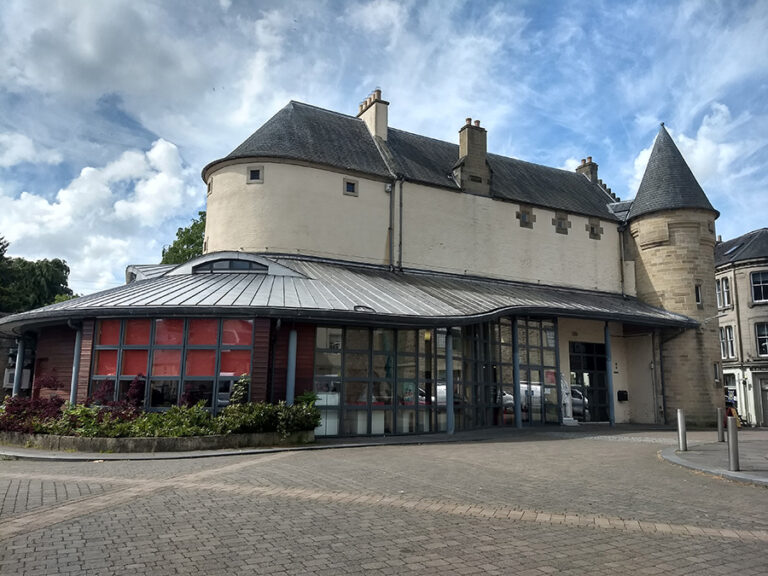
The father, who died in his 90s, was ‘quite a character’ who lived a full and interesting life. He was also a keen boot fair visitor and collector; however, he had passed away having left no information about his wide collection of artefacts. His buying habits were eclectic, choosing items because they appealed to him at the time, and one of those items was a roll of old-looking documents. His son did not know what they were or when they had been bought, but recognised that they might be of some historical interest. He only had a week or two to clear his father’s house and wanted to make sure they were properly conserved, so he contacted Kathy at his nearest archive.
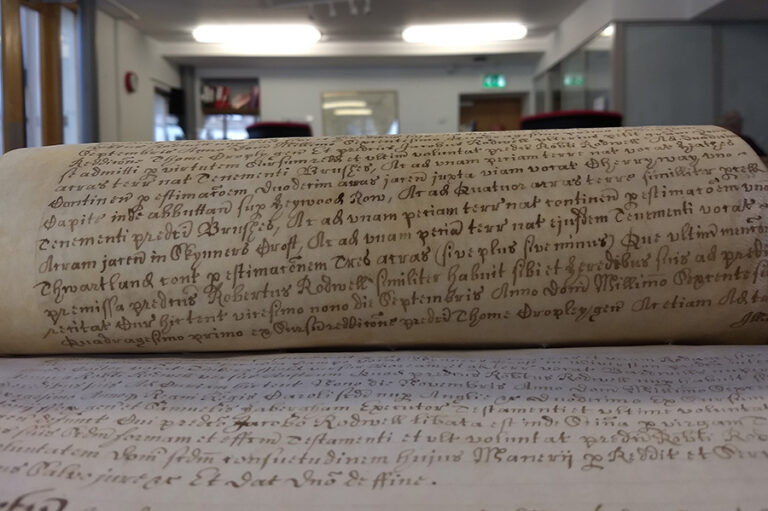
Kathy was intrigued and asked him if it would be possible to bring them in. Within a few minutes, he arrived with a large plastic bag under his arm. After completing the necessary paperwork, Kathy took a closer look at the documents and quickly realised that this was indeed an interesting find.
The roll was made up of 18 sheets of vellum, approximately 30cm x 100cm, bound by thread stitching, with the top two sheets detached. The general condition was good, with some fading on the front page and a little damage to some of the bottom edges. Although the handwriting was clear, the documents had been written in Latin. Instantly, Kathy knew these were not familiar Scottish documents. The landholding system in Scotland was quite different to England and there were no manorial courts.
The same day, two experienced researchers were at the Hub and Kathy invited them to join her as she carefully unrolled the vellum. Their excitement grew as they realised that the documents dated from the 17th century. But, when Scottish genealogist and tutor, Lorna Kinnaird, took a look at them she knew that they needed further investigation and contacted me, a cross-border local and family historian, to investigate further.
Kathy and the Hub Manager, Paul Brough, allowed me to photograph some of the pages. It was quickly apparent to me that this was a manorial court roll detailing the business of the manorial court of Wyverstone, also spelled Wiverstone.
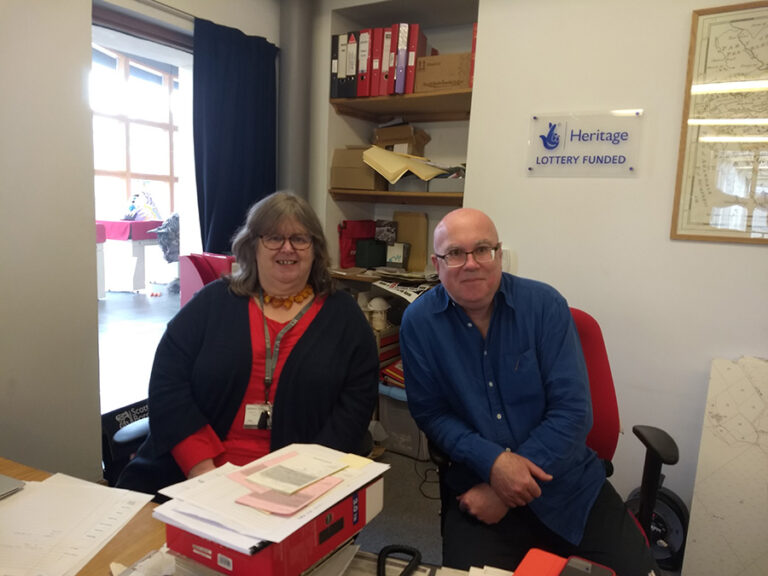
Research was limited at the time by the impact of COVID-19 on travel and access to archives. However, I used a variety of internet sources to discover that Wyverstone Manor was situated in the Hartismere Hundred of Suffolk and is recorded in the Domesday Book as being in the possession of Alwin in Saxon times. It transferred to Robert Malet after the Norman Conquest and, at the time of the creation of these documents, the Lord of the Manor was Sir Edmund Bacon, Baronet.
Sir Edmund was the great-great grandson of Sir Nicholas Bacon, first Baronet Bacon of Redgrave, Lord Keeper of the Great Seal to Elizabeth I. Sir Nicholas had a great deal of land in East Anglia and London, much of it former monastic land, acquired during the Reformation in the 16th century.
Sir Edmund was the fourth Baronet Bacon of Redgrave, born in Ryburgh, Norfolk in 1634. He attended Caius College, Cambridge from the age of 14 and, aged around 21, inherited the title from his grandfather. In 1666 he was also appointed High Sheriff of Suffolk.
A Deed of Settlement held at Norfolk Record Office showed that Wyverstone was still in the hands of Sir Edmund in 1674. He died in 1685 and was buried at St Mary the Virgin Church, Redgrave, Suffolk and his will was proved at the Prerogative Court of Canterbury. As there was also a Sir Edmund Bacon of Gillingham whose dates overlap, care must be taken to avoid confusion.
There are few manorial documents held in Suffolk for Wyverstone. A check of the Manorial Documents Register showed that the majority of the court records up to 1657 are held in the University of Chicago Library, Special Collections. For the date of these documents, the late 1660s, the only reference to manorial court records is 1599-1711 court extracts (compiled in the 18th century), held at Suffolk Record Office, Ipswich Branch (ref. HA407/6022), although this is not shown in the Ipswich Record Office online catalogue. It would appear therefore that this is indeed a new find, not currently included in the Manorial Documents Register.
So, what is next for this fascinating document? Kathy and Paul are very keen to ensure that it is relocated to the appropriate local archives. Coincidentally, Paul used to work with Bridget Hanley of the Suffolk Record Office at Ipswich. He has been in touch with her and is making arrangements for the documents to be safely transported there to Suffolk, where they can be examined by experts on this area of England.
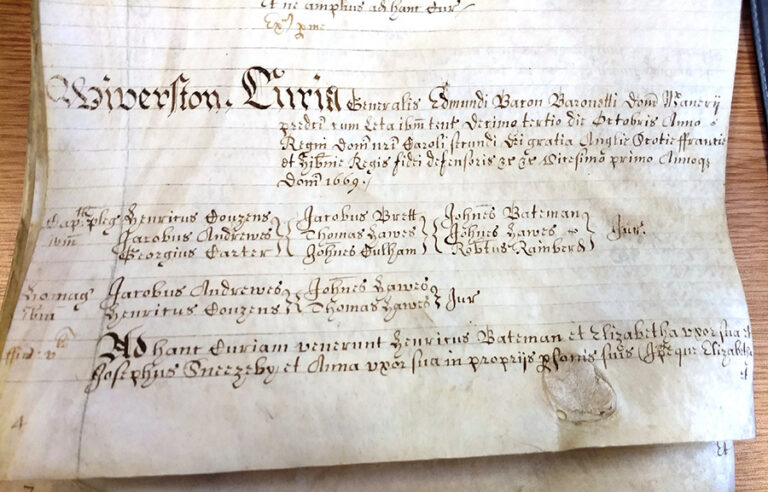
Asked how they felt about this unexpected find, Kathy and Paul said that it had been a privilege to have these court rolls temporarily. In this Border Reiver area, there has been a long-standing tradition of relieving the English of their goods but fortunately, this time, they will be making their way back to their true home.
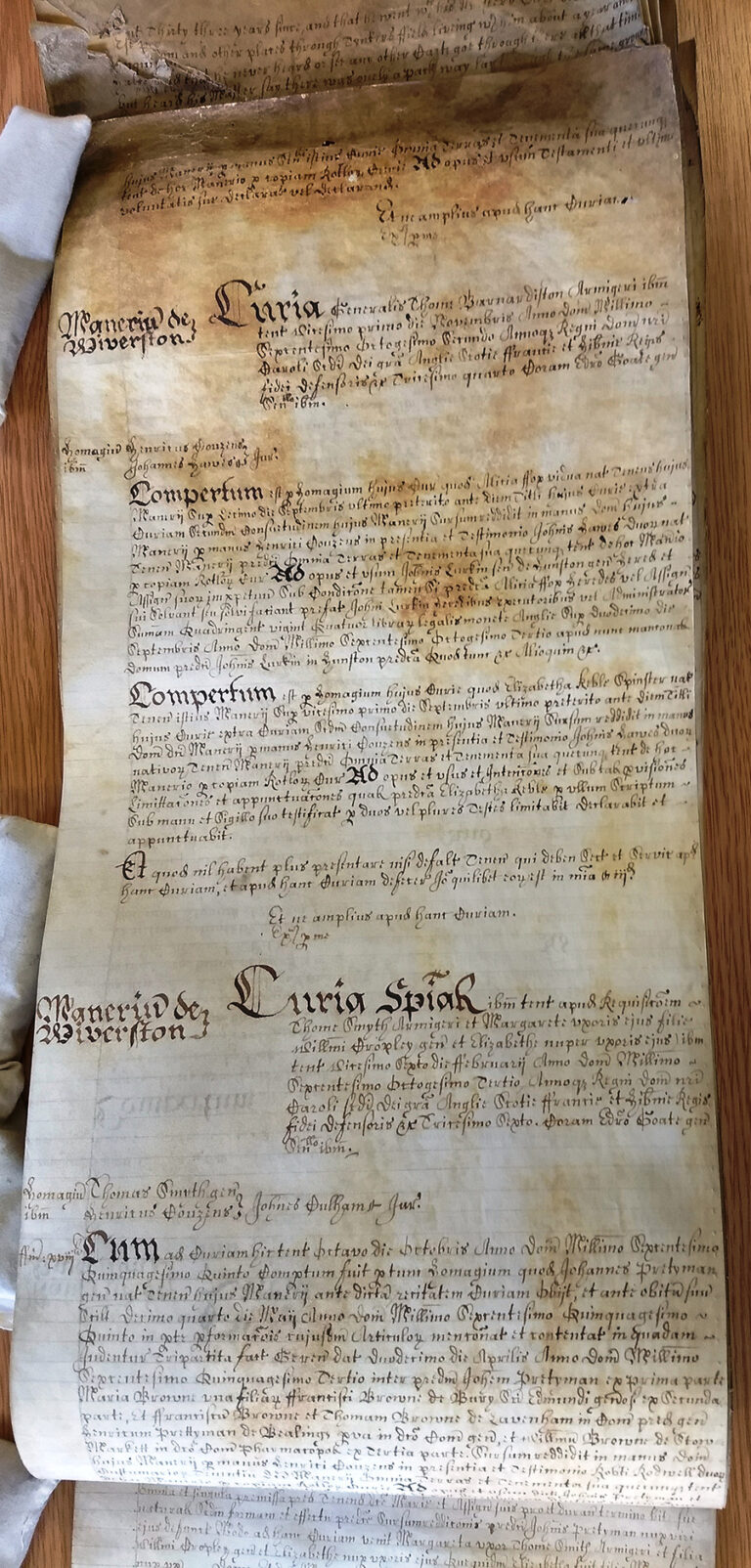
Absolutely wonderful Wendy. What a great article and a great outcome.
What a trail to follow but oh, how wonderful these documents have survived and the son from Lithuania took the trouble to take them to Kathy. Congratulations to everyone involved!
What a heartening “good news” story!
Fascinating to learn of the discovery of these old documents, their origins and their destination.
What a brilliant piece of work Wendy. Looking forward to viewing this in person at The Hold, Ipswich!
I was one of the researchers in the Heritage Hub that day and saw the roll being lifted out of the plastic bag. An amazing archive experience – it made my day!
Let’s get the rest of the documents back to England from Chicago.
It’s one of those things that makes working in archives so rewarding isn’t it Margaret? I’m hoping the document will be at The Hold by Christmas.